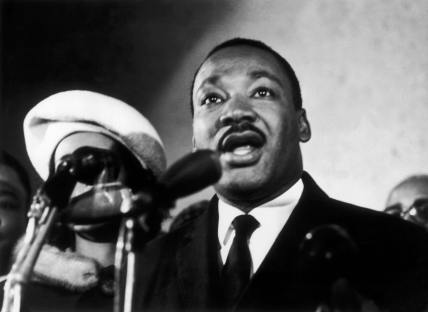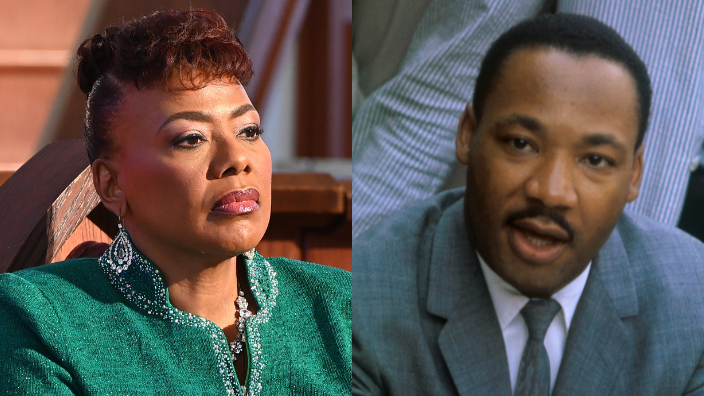The fight for MLK Day
From politicians to Stevie Wonder and the NFL, theGrio's Cleared Up series breaks down the two-decades-long fight to making Dr. Martin Luther King's birthday a federal holiday.
Today is Dr. Martin Luther King Jr. Day, but with so much of Dr. King’s dream still unrealized, many people feel the holiday was created as merely a consolation prize in lieu of tangible change.
But in reality, that couldn’t be farther from the truth. In the latest episode of theGrio’s explainer series Cleared Up, host Tatianna Mott breaks down the almost two-decade fight for MLK Day to become the 10th federally recognized American holiday.
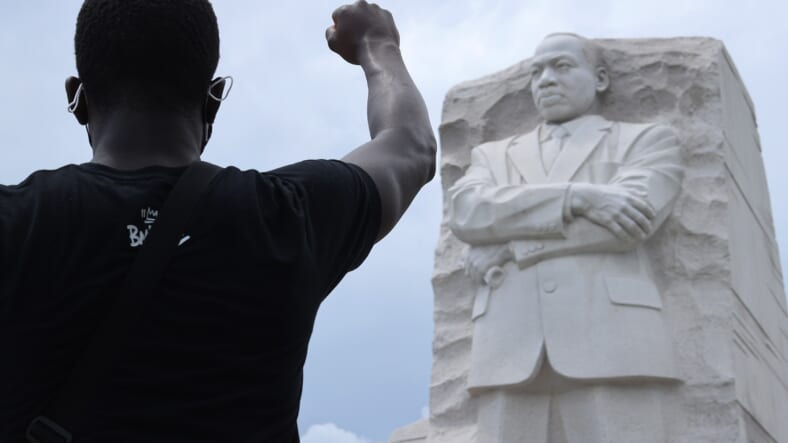
Civil rights icon, Dr. Martin Luther King Jr., whose work helped to bring about sweeping legislative changes that affect the freedoms and rights we have today was assassinated in 1968, and efforts to create a federal holiday in his honor began instantly.
Four days after King’s death, the first bill to make Dr. King’s birthday, Jan. 15, a federal holiday was introduced to Congress by Rep. John Conyers. The bill was hit with staunch opposition given Dr. King’s political activism and the added cost to taxpayers.
However, with the support of the Congressional Black Caucus, labor unions, the Southern Christian Leadership Conference and The King Center, founded by Dr. King’s widow, Coretta Scott King, Conyers continued to push the legislation every session of Congress for the next 11 years.
In 1979, Mrs. King led a nationwide campaign in honor of what would have been Dr. King’s 50th birthday, which gained the support of President Jimmy Carter who finally brought the bill up for a vote in the House of Representatives.
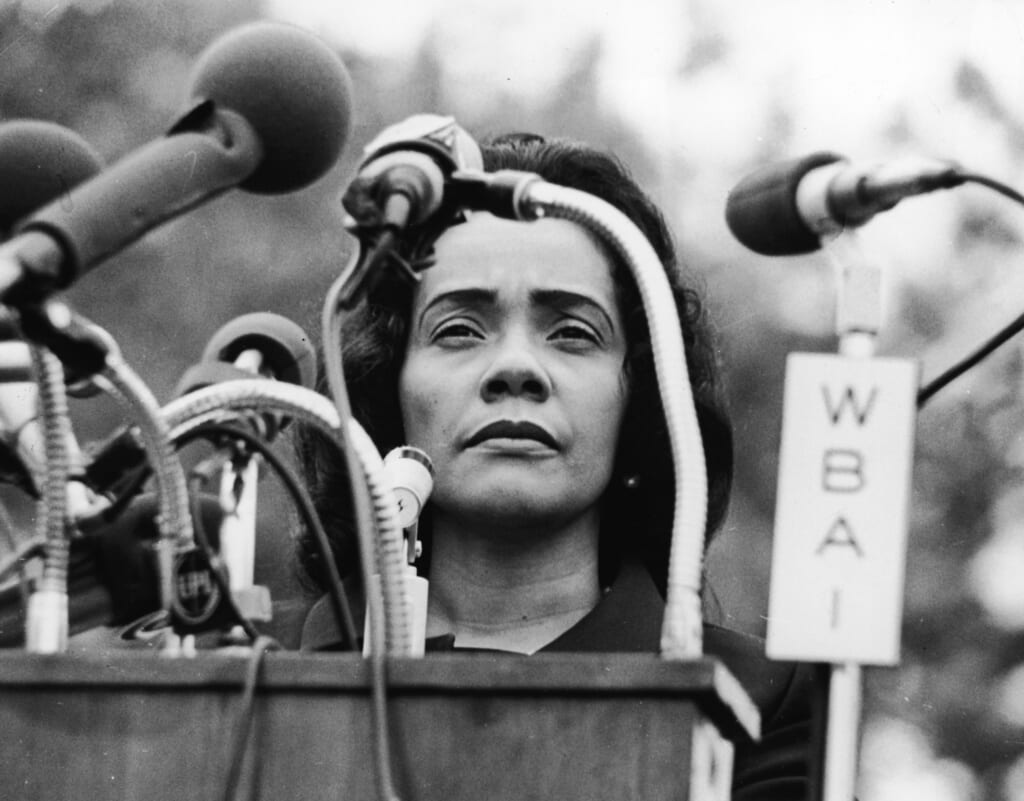
Despite this support, the bill received a 252-133 vote, five votes short of the two-thirds majority needed to pass.
Determined to ensure that Dr. King’s legacy would be known for generations to come, legendary musician Stevie Wonder decided to take on the fight.
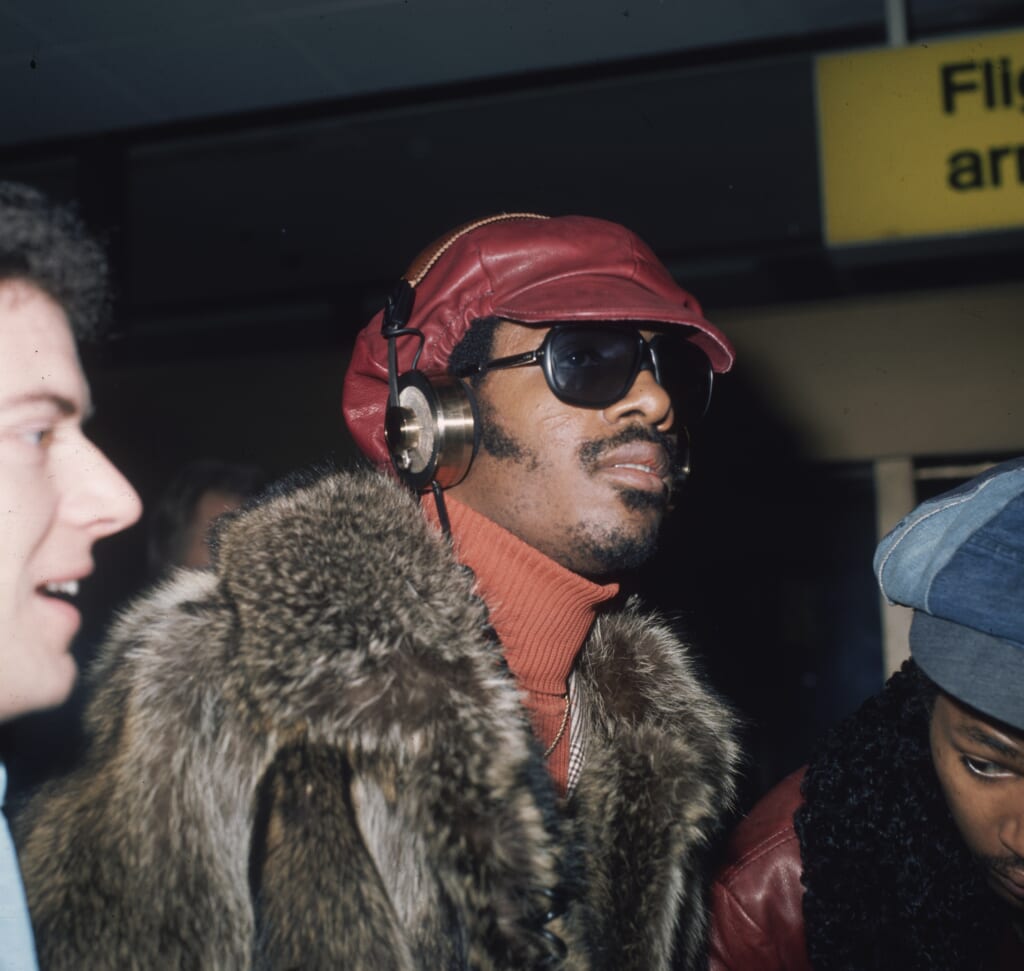
Wonder, who was one of the biggest pop music stars in the world at the time, took off three years from his career in order to lead the charge, releasing a hit song “Happy Birthday” dedicated to the slain civil rights icon.
With lyrics such as “I just never understood how a man who died for good could not have a day that would be set aside for his recognition,” many now refer to the song as the Black version of “Happy Birthday.”
In 1981, Wonder and the King Center held a rally for peace on the steps of the U.S. Capitol, where 50,000 people came from across the nation to honor Dr. King’s birthday. They then launched on a nationwide tour, collecting six million signatures for a petition to present to the House of Representatives.
The House took up the bill in 1983, and this time, it passed by 53 votes.
But getting the bill passed in the Senate proved more difficult as Sen. Jesse Helms of North Carolina openly and vehemently opposed it. Helms introduced a filibuster, followed by a 400-page file alleging that Dr. King associated with Communists.
But despite that roadblock, the bill passed the Senate by 12 votes, and President Ronald Reagan signed the bill into law, marking the first federal MLK Day as the third Monday in January 1986.
Many commend Reagan for his part in the holiday’s establishment, but, as Time reported then, “faced with inevitable congressional passage of a bill to make Martin Luther King‘s birthday a national holiday, Reagan swallowed his long-standing objections that this would open the door to many other groups seeking similar holidays and decided that he would support the measure.”
Even with MLK Day now being a federal holiday, it took almost another two decades to be adopted by all fifty U.S. states.
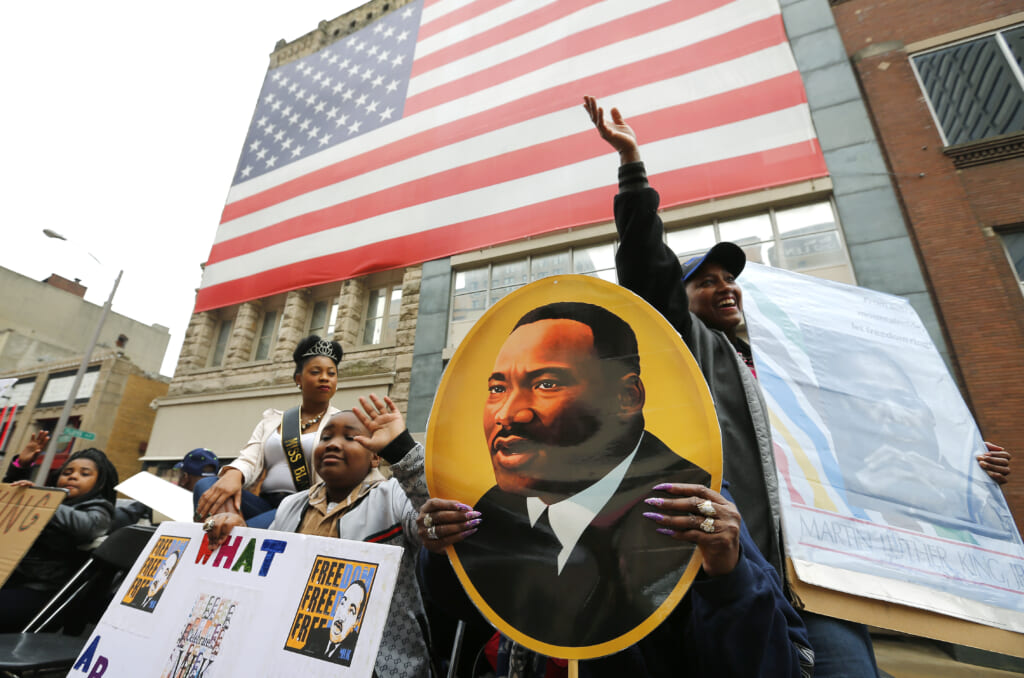
Arizona refused to recognize it until the NFL withdrew the 1993 Super Bowl, moving it to California in protest. South Carolina was the last state to officially add the holiday in the year 2000, but a few states, like Virginia, had been celebrating MLK alongside Confederate generals Robert E. Lee and Thomas J. Jackson up until 2020.
Check out the latest episode of Cleared Up for more information about the history of MLK Day.
Have you subscribed to theGrio’s podcast “Dear Culture”? Download our newest episodes now!
TheGrio is now on Apple TV, Amazon Fire, and Roku. Download theGrio today!
More About:Lifestyle Black History Month
